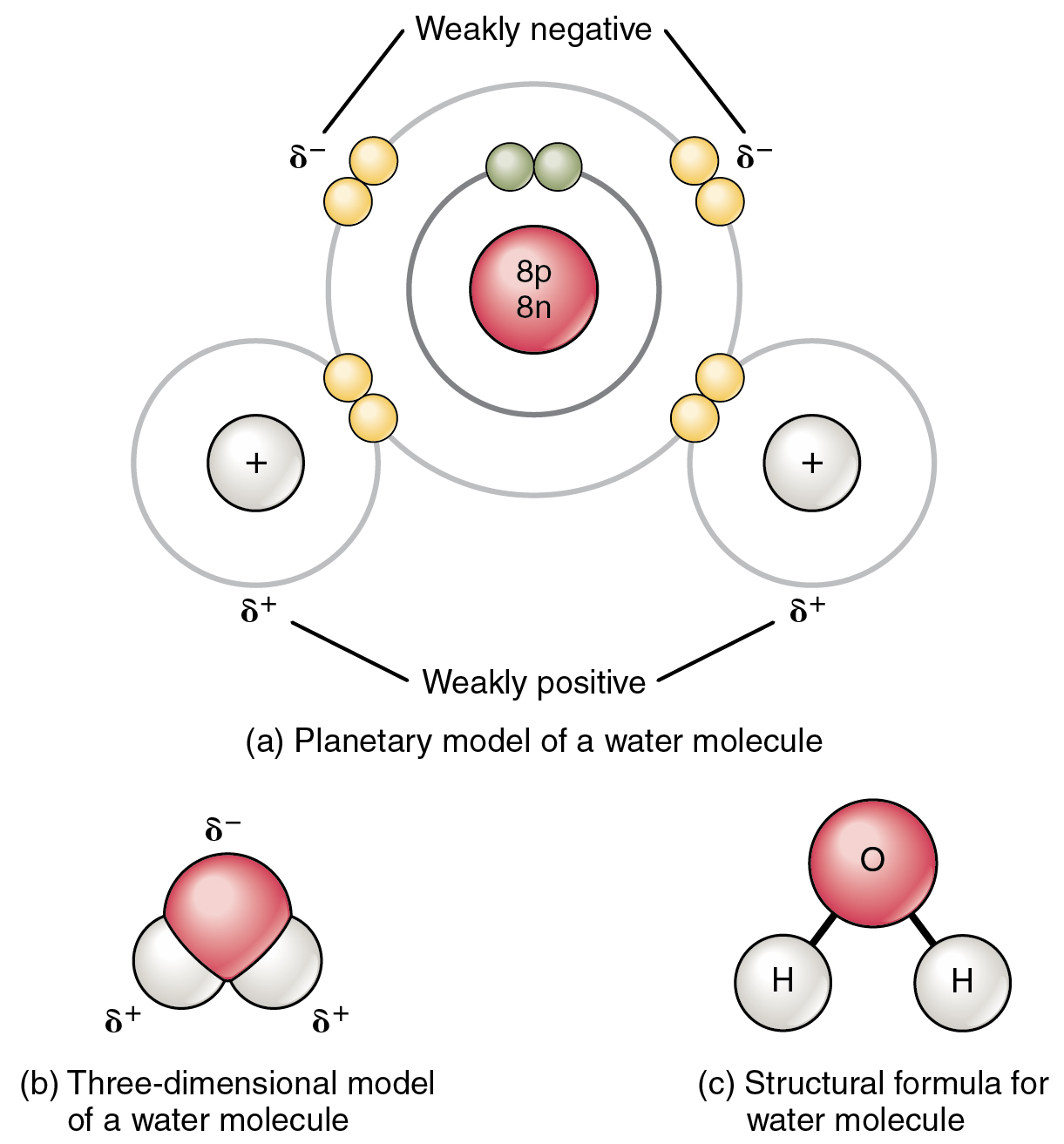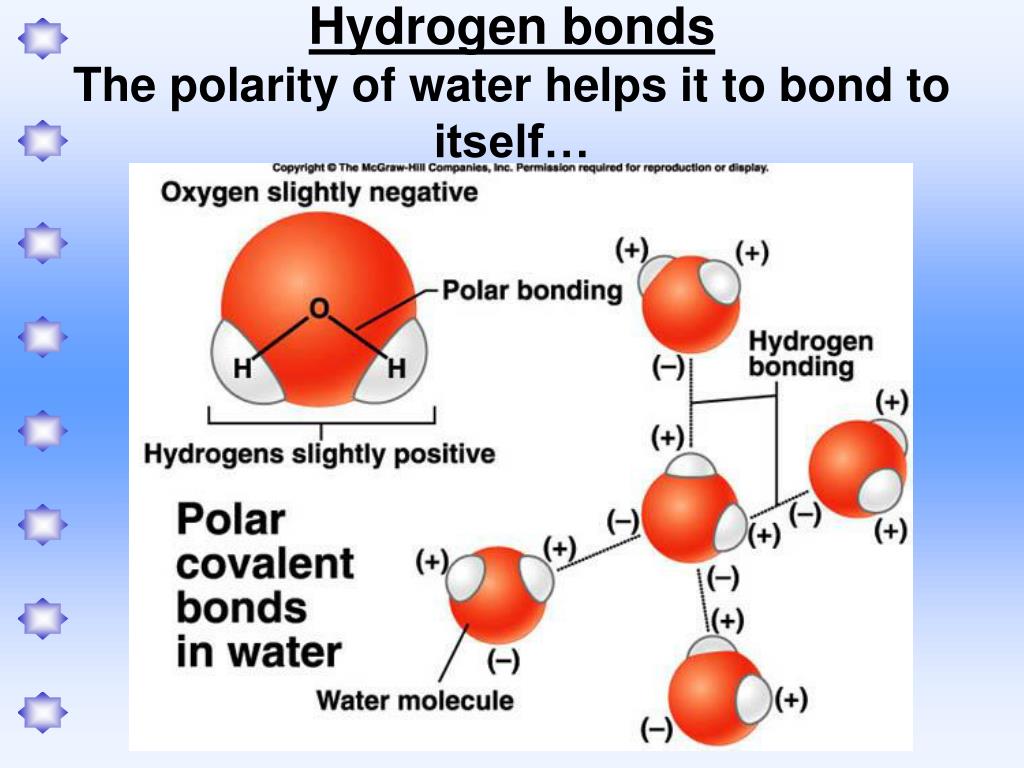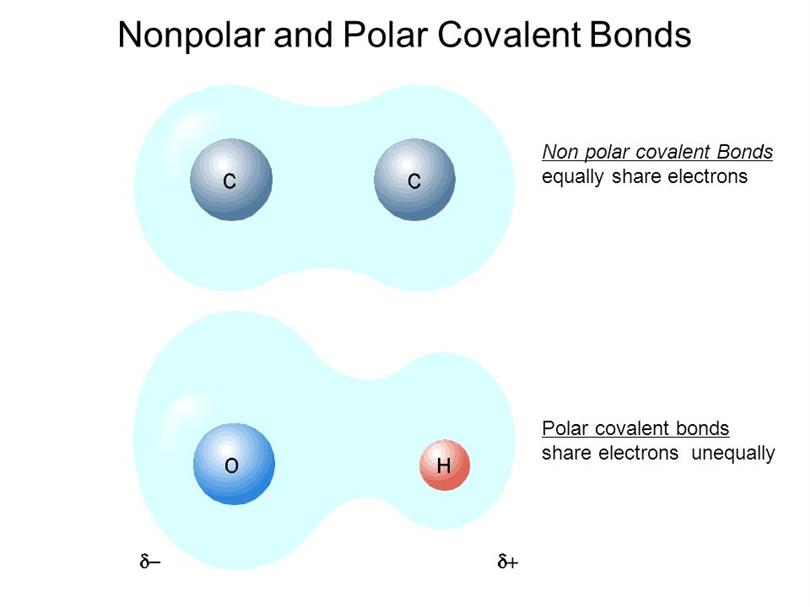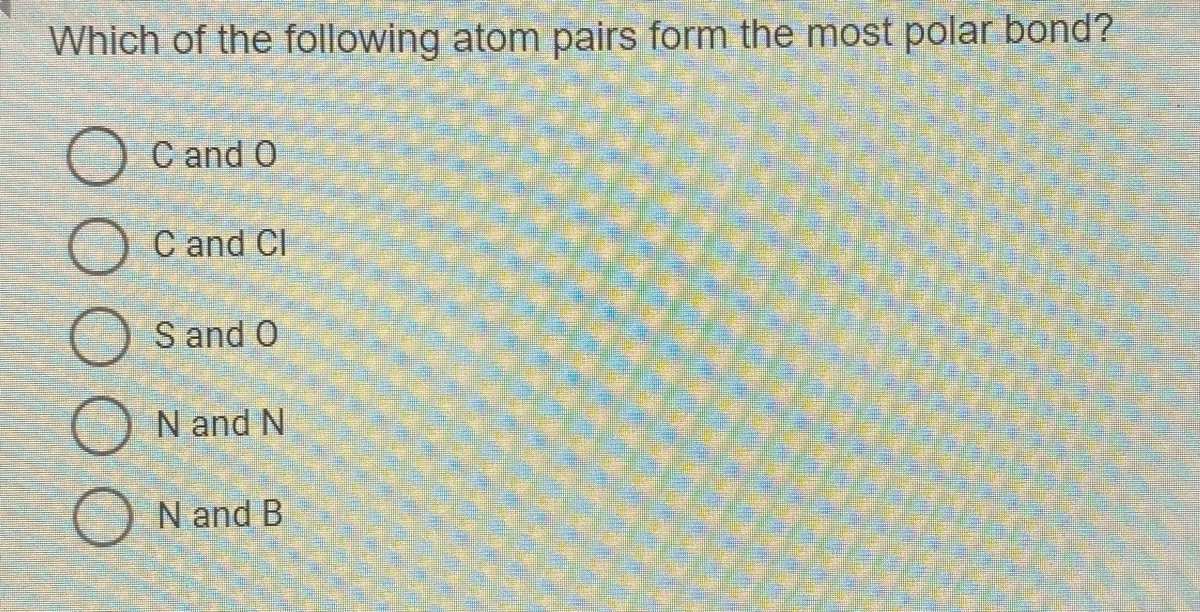Which Of The Following Forms The Most Polar Bond - Web chemistry questions and answers. Which of the following forms the most polar bond? F and c b and n s and cl f. View the full answer transcribed image. Web which of the following forms the most polar bond? Sand ci fand c o and s are any of the. Web silicones are polymeric compounds containing, among others, the following types of covalent bonds: Web study with quizlet and memorize flashcards containing terms like which of the following bonds would be the most polar?, which. Web polar covalent bonds lie on the bonding continuum between pure covalent and ionic bonds. Web the polarity of a covalent bond can be judged by determining the difference of the electronegativities of the.
9.3 Molecular Shape and Molecular Polarity Chemistry LibreTexts
F and c b and n s and cl f. Web which of the following forms the most polar bond? Sand ci fand c o and s are any of the. Web correct option is c) the bond with the polar character is the one in which there is a high electronegativity difference between the. Web the polarity of a.
How does a polar bond differ from a covalent bond
∙ electronegativity is a measure of the tendency of an atom to attract a bonding. Web the polarity of a covalent bond can be judged by determining the difference in the electronegativities of the two atoms making the bond. View the full answer transcribed image. Web silicones are polymeric compounds containing, among others, the following types of covalent bonds: Web.
Attractive Forces and Bonds
Web which of the following forms the most polar bond? Web polar covalent bonds lie on the bonding continuum between pure covalent and ionic bonds. Chlorine, phosphorus, sulfur, and silicon. Which of the following forms the most polar bond? Web any covalent bond between atoms of different elements is a polar bond, but the degree of polarity varies widely.
Solved duil See Periodic Table See Part 1 (1 pt) Which of
Web silicones are polymeric compounds containing, among others, the following types of covalent bonds: Cl and o f and te n and f s and f are any of the bonds formed. Web the polarity of a covalent bond can be judged by determining the difference in the electronegativities of the two atoms making the bond. Web consider the covalent.
Chapter5
Web the polarity of a covalent bond can be judged by determining the difference of the electronegativities of the. A cl−cl b n−f c c−f d o−f medium solution verified by toppr correct option is c) the. F and c b and n s and cl f. Te & f bond is more polar. Which of the following forms the.
PPT Biology Biochemistry Unit Chapter 2 The Chemistry of Life
Which of the following forms the most polar bond? Web study with quizlet and memorize flashcards containing terms like which of the following bonds would be the most polar?, which. Web consider the covalent bond each of the following elements forms with hydrogen: Web polar bonds are intermediate between pure covalent bonds and ionic bonds. Web chemistry questions and answers.
Solved Which of the following forms the most polar bond
Web consider the covalent bond each of the following elements forms with hydrogen: Web any covalent bond between atoms of different elements is a polar bond, but the degree of polarity varies widely. Web correct option is c) the bond with the polar character is the one in which there is a high electronegativity difference between the. Web the polarity.
What Is a Polar Bond? Definition and Examples
Web which of the following is most polar bond? Web chemistry questions and answers. Question which of the following bonds will be most polar? Web which of the following forms the most polar bond? Which of the following forms the most polar bond?
Which Pair Of Atoms Forms The Most Polar Bond
Which of the following forms the most polar bond? Web which of the following is most polar bond? Web correct option is c) the bond with the polar character is the one in which there is a high electronegativity difference between the. Web chemistry atomic size and electronegativity which of the. Te & f bond is more polar.
Answered Which of the following atom pairs form… bartleby
Web silicones are polymeric compounds containing, among others, the following types of covalent bonds: Web study with quizlet and memorize flashcards containing terms like which of the following bonds would be the most polar?, which. The greater the difference in electronegativities, the greater the imbalance of electron sharing in the bond. Web the polarity of a covalent bond can be.
Web any covalent bond between atoms of different elements is a polar bond, but the degree of polarity varies widely. Web polar covalent bonds lie on the bonding continuum between pure covalent and ionic bonds. Web chemistry atomic size and electronegativity which of the. View the full answer transcribed image. Which of the following forms the most polar bond? Web silicones are polymeric compounds containing, among others, the following types of covalent bonds: Sand ci fand c o and s are any of the. Web the polarity of a covalent bond can be judged by determining the difference of the electronegativities of the. Therefore, c−f bond will be the most polar. Which of the following forms the most polar bond? Web the polarity of a covalent bond can be judged by determining the difference in the electronegativities of the two atoms making the bond. Web which of the following forms the most polar bond? Cl and o f and te n and f s and f are any of the bonds formed. Web polar bonds are intermediate between pure covalent bonds and ionic bonds. Chlorine, phosphorus, sulfur, and silicon. A cl−cl b n−f c c−f d o−f medium solution verified by toppr correct option is c) the. They form when the electronegativity difference between the anion and. Which of the following forms the most polar bond? ∙ electronegativity is a measure of the tendency of an atom to attract a bonding. Question which of the following bonds will be most polar?
Which Of The Following Forms The Most Polar Bond?
A cl−cl b n−f c c−f d o−f medium solution verified by toppr correct option is c) the. ∙ electronegativity is a measure of the tendency of an atom to attract a bonding. Cl and o f and te n and f s and f are any of the bonds formed. Which of the following forms the most polar bond?
Question Which Of The Following Bonds Will Be Most Polar?
Web silicones are polymeric compounds containing, among others, the following types of covalent bonds: Which of the following forms the most polar bond? Web polar bonds are intermediate between pure covalent bonds and ionic bonds. Web which of the following is most polar bond?
They Form When The Electronegativity Difference Between The Anion And.
F and c b and n s and cl f. Web correct option is c) the bond with the polar character is the one in which there is a high electronegativity difference between the. Web consider the covalent bond each of the following elements forms with hydrogen: Web chemistry atomic size and electronegativity which of the.
Web The Polarity Of A Covalent Bond Can Be Judged By Determining The Difference In The Electronegativities Of The Two Atoms Making The Bond.
Web chemistry questions and answers. Web which of the following forms the most polar bond? View the full answer transcribed image. Web polar covalent bonds lie on the bonding continuum between pure covalent and ionic bonds.








/PolarConvalentBond-58a715be3df78c345b77b57d.jpg)

